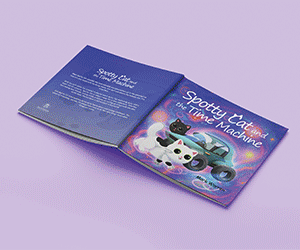Primary Times - the definitive what’s on and where to go family guide of activities and events for children of primary school age. Things to do with your kids during the school holidays including arts and craft activities, music and theatre for children, parties, competitions, days out, and family attractions along with term time drama schools, dance classes, after school clubs and sports activities. Things to do at a place near you!
Don't shield kids from Coronavirus discussions, warns UK expert
 DON’T shield your kids from discussions about Coronavirus - because chatting about the outbreak might just safeguard their mental health in the future.
DON’T shield your kids from discussions about Coronavirus - because chatting about the outbreak might just safeguard their mental health in the future.
That’s according to Dr Zoi Nikiforidou, a Senior Lecturer in Early Childhood Studies at Liverpool Hope University. She says that while you might be tempted to ‘skirt around the issue’ of Coronavirus with inquisitive young kids, you could actually end up harming their development and understanding in the long run.
Dr Nikiforidou - who specialises in research about children and risk and who rails against so-called ‘cotton wool kids’ - reveals: “Rightly or wrongly, the Coronavirus has been dominating news agendas.
“And I’d argue strongly that I don’t think it’s right to avoid sharing information about the outbreak with your children.
“Your child might only be five or six years old.
“But he or she will pick-up pieces of information vicariously, whether it’s snippets of things they hear on the radio, in the car, or through news segments overheard from the TV or from discussions with peers at school.
“They might not mention anything to you. But internally they may be trying to process this new information which could also be making them fearful.
“You might be tempted to try and skirt around the issue, telling them, ‘Oh, you don’t need to know about that’ in order to safeguard their feelings and worries.
“But you’re making judgements about what they may or may not need to know which could actually be detrimental to their cognitive development and appreciation of what is risky or not.”
Dr Nikiforidou, a former kindergarten teacher, says children shouldn’t be kept in a ‘bubble’ - and you shouldn’t underestimate their powers of reason and understanding, either.
She explains: “Like it or not, Coronavirus conversations will be going on around your children and by not addressing it you’re creating a breeding ground for fear and misunderstanding.
“It’s doubly important to tackle the issue head-on if they arise at a question for you about Coronavirus.
“They might be exposed to this new reality already and by trying to shield them, or keep them ‘protected’, you’re not helping them to understand and process the information, the causes, the consequences, the precautionary and preventive behaviours.
“You need to involve them in the discussion, and maybe even involve them in the analysis to a certain point.
“At least bring them into the picture and make them feel like their question is valuable and has merit.
“As a responsible adult, you need to be able to sit down and have a proper discussion about all facets of life, including news stories such as Coronavirus which might make you feel uneasy.”
Dr Nikiforidou also has some practical tips on how to approach the subject with your child. She explains: “This sounds obvious, but parents need to be informed themselves about Coronavirus before they even think about discussing it with their children.
“Visit the Government’s Public Health England and NHS information pages and get yourself acquainted with the official, research-based advice - not just the sensational content you might stumble upon on social media.
“Recognise that some reports are more likely to induce panic or to provoke tension than others.
“Try not to convey any stress or anxiety on your part. But also don’t feel bad about sharing your concerns and worries either. Try to use positive language instead of language that scares and is absolute.
“After all, this is part of life - growing older is about confronting certain anxieties and challenges that can be hazardous or not.
“And by denying your child access to these feelings you’re underestimating their capacity for thought and also potentially stunting their emotional development.”
The key symptoms of infection include a fever, cough as well as shortness of breath of breathing difficulties. Public Health England advise frequent hand washing with soap or antibacterial gel in order to minimise the risk of infection. Meanwhile if you do suspect a problem, the advice is to phone NHS 111 and to ‘self-isolate’ yourself.
Credit: Dr Nikiforidou and Liverpool Hope University




